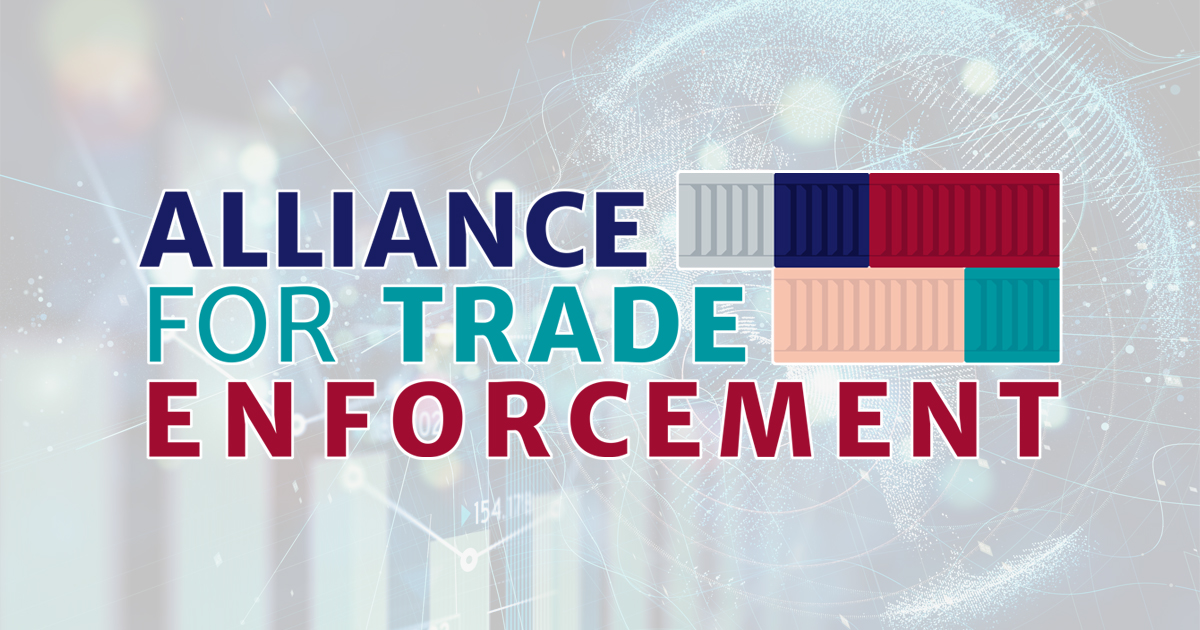
AFTE Urges Biden-Harris Administration to Strengthen USMCA Enforcement at Agreement’s Two-Year Anniversary
WASHINGTON (July 1) – Today marks the two-year anniversary of the United States-Mexico-Canada Agreement (USMCA) entering into force. The USMCA has the potential to foster a mutually beneficial, fair, and reciprocal trade system in North America. However, our trading partners — and Mexico in particular — have yet to fully implement the agreement.
“Mexico’s failure to adhere to its USMCA commitments harms the nearly five million U.S. jobs that depend on trade with our southern neighbor,” said the Alliance for Trade Enforcement Executive Director Brian Pomper. “The Office of the United States Trade Representative has committed itself to advancing a worker-centric trade agenda. Ensuring that Mexico upholds its USMCA obligations is a guaranteed way to improve the wellbeing of American workers in trade-intensive industries.”
By disrupting supply chains, raising the prices of consumer goods, and boxing American companies out of the Mexican market, Mexico’s USMCA violations impact a range of industries and severely undercut our nation’s economy. The Mexican government’s violations include, but are not limited to:
- Efforts to nationalize the state’s energy sector and rid it of foreign investment, which impact U.S. firms operating in Mexico and impede clean energy initiatives.
- Delays in approving agricultural biotech products, which disrupt food supply chains, exacerbate food price inflation, and block advancements in sustainable agricultural technologies.
- Unwillingness to bring its IP regime into full compliance — despite amending its IP law nearly two years ago — which devalues U.S. biopharmaceutical products and threatens the development of breakthrough treatments.
- Refusal to extend patentability to computer-implemented inventions, which limits the operation of American technology firms in Mexico.
- Steps in Mexico’s procurement process for broadband equipment taken to benefit companies known by Congress and the FCC to pose national security risks.
- Actions by Mexico’s regulatory agency that fail to promote competition in the telecommunications market and show it is operating in a manner that distorts that market in favor of the largest domestic operator.
- Failure to uphold regulatory commitments for medical devices, which puts patients, health systems, pandemic recovery, and medical technology supply chains at risk.
- New requirements by the Mexican Tax Administration for transportation of goods through Mexico which create administrative burdens by imposing excessive data collection on shippers, consignees, and routes through electronic waybills.
- Expanded food labeling requirements by Mexican authorities that ban sales of U.S. packaged goods to minors, restrict U.S. exports, increase legal uncertainty and diminish U.S. intellectual property protections and advertising, generating excessive costs and forcing U.S. companies to discontinue the sale of certain products.
- New policies that undermine customs obligations under USMCA and create new customs barriers that impact American small businesses.
- Failure to provide market access and national treatment to foreign suppliers of electronic payments services (EPS).
Mexico is the United States’ second-largest trading partner. It is imperative that U.S. Trade Ambassador Katherine Tai address these and other violations in order to realize the full potential of U.S.-Mexico trade and uphold the promise of this critical agreement.
“A high-functioning trade relationship with Mexico is good for both the United States and Mexico,” said Pomper. “It’s time for the Biden-Harris administration to take action and fully enforce the USMCA in Mexico.”
About the Alliance for Trade Enforcement: The Alliance for Trade Enforcement is a coalition of trade associations and business groups that advocates for foreign governments to end unfair trade practices that harm U.S. innovative industries and supports U.S. policymakers in their efforts to hold our trading partners accountable.

